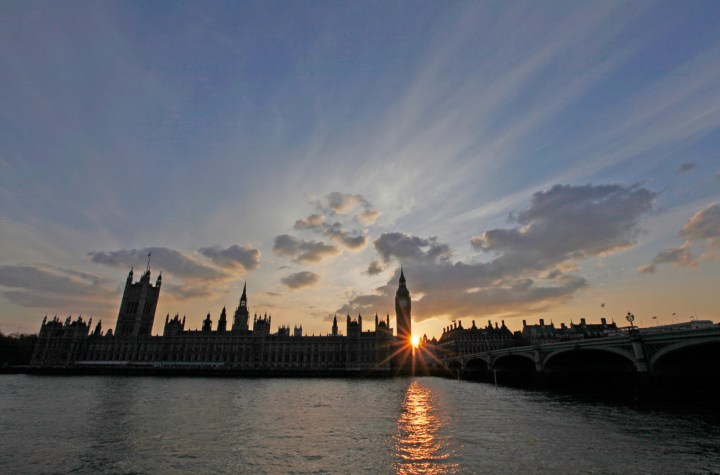A new book by Observer columnist Robert McCrum suggests that the spread of English through the Internet, and the new ubiquity the language has achieved in popular culture, implies a break from the imperialist past. What does this have to do with a South African swimming in the Thames at midnight?
On Monday night in London, after a talk I gave to the SA Business Club about my book Ways of Staying and the fraught relationship expatriate South Africans tend to have with their homeland, I followed a group of young executives to a pub in the shadow of St Paul’s. They were Joburgers and Durbanites – there was also a Zimbabwean – and as more rounds were being ordered, they maintained their sophisticated conversation about the virtues of England versus the pull of home and identity. At the end of the evening, after we’d moved on, the smartest of their number stripped to his briefs and performed a perfectly executed swan dive into the Thames.
It was profound; way more an act of claiming ownership than a challenge to authority or the diseases that live in the river. Across the water were the new skyscrapers of Canary Wharf, upriver was the London Eye, Westminster and the Tate; symbols all of the power the city continues to exercise over its continent and the world. This was Mother England, and here was a thirty-year-old South African with his own business and offices in the financial district jumping into the most important artery of its jealously pulsing heart.
Yes, there are questions about the British economy, British history, British culpability in the colonies, but at the core of it all is the British language – English, while it may soon be scuppered by Mandarin, is still what all who wish to better themselves must learn to speak.
In his new book Globish, Observer columnist Robert McCrum argues that thanks in part to the Internet, the globalisation of “English literature, law, money and values” is “the cultural revolution of [his] generation.” An Englishman would say that, of course, but then another thing about them is they know how to state their case. An excerpt from the book’s first chapter, published in the New York Times on Tuesday, proves the point.
“The tides and climate of the sea shaped the making of English in countless ways. At the outset, the sea was not just the most effective natural defence known to man and a great natural highway, it also made the tribes it protected separate, proud, watchful and self-conscious. Islanders are not like other people; they have different psychic and physical horizons. It is no accident that the English were the first in Europe to produce a vernacular account of their exploits, the Anglo-Saxon Chronicle…”
And a few sentences later: “In the making of an English consciousness, it is impossible to overestimate the importance of the sea. There is, as the historian David Miles has put it, another way of looking at this: ‘The outside world does not bounce off the white cliffs of Dover; rather it washes around them and into the inlets of the Thames, Ouse, Humber and Trent, the Tyne, Forth, Clyde, Dee, Mersey, Severn and Shannon.’”
That would be the same Thames – the one that comes before all the other rivers – that our crazy South African flung himself into on Monday night. He was, in a sense, literally washing himself in the great tide of the language, doing what billions of others do daily in a more figurative sense.
The thesis of Globish, as New York Times reviewer Dwight Garner points out, is that the English the world speaks in 2010 – which includes such variants as Spanglish, Manglish and Konglish – has broken the bounds of its imperialist past. The language is no longer the preserve of one dominant culture. “The road signs on the information highway are written in English,” observes Garner. “Eighty percent of the world’s home pages are composed in some kind of it. Texting is playfully bending English by the nanosecond. LOL and GR8 and BTW are becoming more international, and more beloved, than Coca-Cola or James Bond ever were. As the increasingly harried editors of the O.E.D. might put it, OMG.”
At the beginning of the week I wrote a piece for The Daily Maverick suggesting that, from London, South Africa seems incredibly far away. I may have overstated my case. If English is the code of the worldwide digital network, if we speak a common babel that ebbs and flows on global tides, if a South African can swan dive at midnight into the Thames, we may not be as distant as we think.
By Kevin Bloom
Read more: Excerpt from Globish, New York Times review of Globish.


















 Become an Insider
Become an Insider